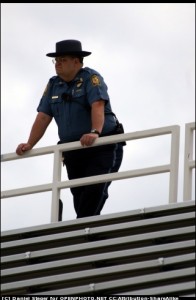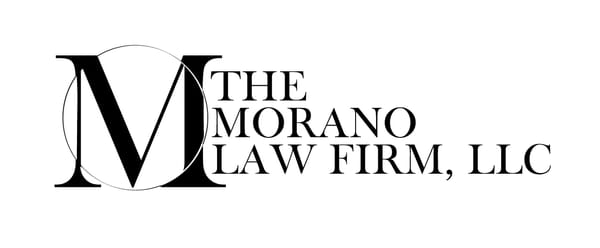First time offenders now have new option in New Jersey with the new Conditional Dismissal program for minor offenses in municipal court.
The new law establishes a conditional dismissal program in the municipal courts for eligible first-time defendants charged with  certain disorderly persons offenses. The program compliments existing criminal justice diversion programs such as pretrial intervention (PTI) for certain indictable offenses in Superior Court under N.J.S.A. 2C:43-12 et seq. and conditional discharge for certain disorderly persons drug offenses in the municipal courts under N.J.S.A. 2C:36A-1.
certain disorderly persons offenses. The program compliments existing criminal justice diversion programs such as pretrial intervention (PTI) for certain indictable offenses in Superior Court under N.J.S.A. 2C:43-12 et seq. and conditional discharge for certain disorderly persons drug offenses in the municipal courts under N.J.S.A. 2C:36A-1.
Under the law, a defendant who is charged with a petty disorderly persons offense or a disorderly persons offense may apply to enter into the conditional dismissal program, provided that the person (1) has not been previously convicted of any petty disorderly persons offense, disorderly persons offense or crime and (2) has not previously participated in the conditional discharge, conditional dismissal, or PTI programs. Subsection b. of section 1 of the law also provides a list of offenses that are ineligible to be considered for participation in the conditional dismissal program, such as offenses involving domestic violence or driving under the influence of alcohol. Drug offenses graded as disorderly persons offenses are excluded from the conditional dismissal program since they are eligible for diversion under the conditional discharge statute.
The law provides that before making an application to the court for conditional dismissal, the defendant must be fingerprinted as provided in N.J.S.A. 53:1-15 to allow for verification of the defendant’s criminal history by the prosecutor. In addition, a person seeking admission to the conditional dismissal program must pay to the court an application fee of $75. The law allows a defendant to apply for a waiver of the fee by reason of poverty. The court may also permit the defendant to pay the conditional dismissal fee and other assessments in installments or order other alternatives pursuant to N.J.S.A. 2B:12-23.1. Under the law, conditional dismissal application fees will be deposited in the “Municipal Court Diversion Fund,” which is to be administered by the Administrative Office of the Courts. Monies in the Fund are to be used to offset the cost of intake and monitoring services related to the conditional dismissal program.
If a defendant meets the statutory eligibility criteria, the court would use its discretion to determine if the person should be approved to participate in the conditional dismissal program. In making this decision, the law requires that the court consider the list of factors in subsection c. of section 1 of the law which includes items such as the nature of the offense, the defendant’s background, and the interests of the victim and the public.
Under the law, after considering the defendant’s criminal history, the eligibility criteria and the prosecutor’s recommendation, the court may, without entering a judgment of conviction, and after proper reference to the State Bureau of Identification criminal history record information files, approve the defendant’s participation in the conditional dismissal program and place the defendant under a probation “monitoring” status for one year. In addition the law provides that the court may impose financial obligations and other terms and conditions. The law specifically provides that the court may impose an assessment, based on the nature of the offense and the character of the defendant, that shall not exceed the amount of a fine that would have been imposed for conviction of the offense charged. The law requires that a defendant must be advised of all financial conditions prior to seeking entry into the conditional dismissal program.
If the court approves a defendant’s participation in the conditional dismissal program over the municipal prosecutor’s objection, the law provides that the order approving the defendant’s participation in the program shall be a final order but upon the request of the municipal prosecutor, it shall be stayed for 10 days to permit the prosecutor to appeal such order to the Superior Court.
The law permits the defendant to apply to the court for an extension of the one-year conditional dismissal term to allow additional time to pay financial obligations imposed by the court. In addition, the law allows a judge to extend the term for good cause.
Under the law, if a defendant who is participating in the conditional dismissal program is convicted of any petty disorderly persons offense, disorderly persons offense or crime, or otherwise fails to comply with the terms and conditions imposed by the court, the court can enter a judgment of conviction and impose a fine, penalty, or other assessment in accordance with the dIf, at the end of the term of conditional dismissal, the defendant has not been convicted of any subsequent offense, and has complied with any other terms and conditions imposed by the court, the law authorizes the court to terminate the probation monitoring and dismiss the proceedings against the defendant.
Under the new law, the conditional dismissal of a disorderly persons offense is not deemed a conviction for purposes of disqualifications or disabilities, but must be reported to the State Bureau of Identification criminal history record information files for the purposes of determining future eligibility or exclusion from court diversion programs. In addition, the law states that a conditional dismissal is not deemed a conviction for the purposes of determining whether a second or subsequent offense has occurred under any law of this State. The law also amends section b. of N.J.S.A. 2C:52-6 (Expungement; Arrests not resulting in conviction) to clarify that a person who has had charges dismissed pursuant to a program of conditional discharge or conditional dismissal may apply for an expungement six months after the entry of the order of dismissal.
Finally, the law clarifies that conditional dismissal can only be granted once with respect to any defendant. It also makes complimentary amendments to the PTI and conditional discharge statutes to limit any of the three first-time offender diversion programs to a mutually exclusive single use. In other words, using any one of these diversion programs prevents the subsequent use of any of the three diversion programs. Specifically, section a. of N.J.S.A. 2C:36A-1, the conditional discharge law, is amended to provide that a person who has participated in a program of supervisory treatment (PTI) or conditional dismissal is not eligible for participation in the conditional discharge program. Similarly, the law amends N.J.S.A. 2C:43-12, PTI program criteria, to provide that supervisory treatment may only occur once and any person who has previously received supervisory treatment, conditional dismissal or conditional discharge is not eligible for subsequent supervisory treatment. The PTI and conditional discharge statutes are also amended to allow the payment of the application fee for these programs through installments.

